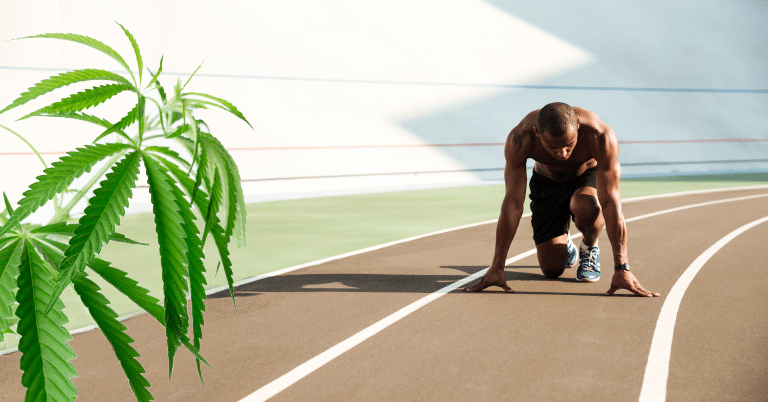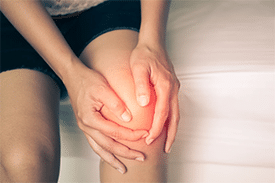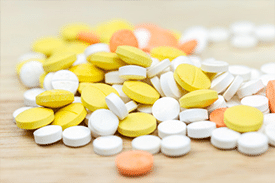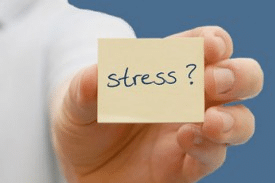
Since January 1, 2018, CBD has been one of the substances authorized in professional sports, including during competitions.
As more research is conducted on the cannabis plant and more information comes to light, the therapeutic benefits of cannabidiol (CBD) are increasingly recognized. Experts today believe that in its natural state, CBD is neither addictive nor harmful. Since January 1, 2018, CBD is even one of the substances authorized in professional sports, including during competitions. This measure has been approved by the World Anti-Doping Agency (WADA) and by the International Athletics Federation. [1]
Warning ! This measure only affects CBD and not all cannabinoids.
A short guide to the benefits of CBD for athletes:
CBD facilitates recovery after exercise
Thanks to its adaptogenic qualities, CBD has joined the list of plants that reduce stress and improve performance. An adaptogenic herb is stimulating in nature, without causing side effects. And that’s exactly what CBD does! By activating the cannabinoid system, CBD helps promote internal balance (homeostasis) in the body. In athletes, this means faster recovery after training; including regulating body temperature and cortisol levels, as well as correcting imbalances that can result from the breakdown of muscle protein and the depletion of stored sugar as glycogen.
It is quite an interesting renewal process that CBD is able to activate. This is called “the stressor resistance phase”.
In the following, we’ll talk about the main implications of CBD for active people:
CBD reduces inflammation

In athletes, after intense or prolonged training, small micro-tears occur in the muscles. The body repairs this damage after you finish training. Think of these micro-tears as small wounds that cause an inflammatory response.
A 2020 review published in Sports Medicine analyzed preclinical studies in animals and clinical trials of CBD in athletes. One of the main findings of the review was that CBD exerts anti-inflammatory effects by relieving pain caused by tissue damage. [2]
According to the same study, CBD is also able to decrease neuropathic pain caused by nerve damage or irritation. Indeed, it turns out that in athletes, long training sessions can cause inflammation and irritation in the peripheral nerves. These are nerves that connect the body’s organs – including muscles – to the central nervous system. It is through these nerves that nerve information circulates, for example giving the information to muscles to contract.
According to a testimony from Dr Michael Verbora, cannabinoid expert and member of the Canadian Cannabinoid Research Consortium: “CBD is known to be an anti-inflammatory and it is probably one of the safest drugs to produce such an effect. “. However, further research is needed, according to Dr Verbora, to know which dose could alleviate which symptom.
CBD could replace NSAIDs and opioids

Many athletes rely on over-the-counter pain management solutions, which unfortunately can lead to several side effects. Standard options, such as nonsteroidal anti-inflammatory drugs (NSAIDs) such as ibuprofen, may pose a health risk when used long term. Other solutions, such as opioids, can be addictive. Unlike these two options, it has been reported that CBD oil has the same pain relieving and anti-inflammatory effects as NSAIDs and opioids, but as a bonus, it does not cause any addictive effects or adverse health effects. [3] The WHO has even gone so far as to publish a comprehensive study which states that “CBD has no effects indicating potential for abuse or dependence.” [4]
CBD is not only a substitute for conventional drugs, but also a restorative agent. This is because CBD is believed to alter the way damaged brain cells of people addicted to opioids communicate with each other. Several specialists also agree that it is possible to help patients reduce their consumption of opioids by replacing them with CBD. The goal is to encourage them to go at their own pace, lengthening the time between opioid doses and slowly adding CBD until the opioid is completely withdrawn.
Less stress for athletes

While you may be physically prepared for an event you are attending, competition day anxiety can take over, creating a state of stress that can adversely affect your performance. Stress in this context is defined as a state of mental or emotional tension resulting from demanding situations. Because CBD helps maintain homeostasis in the body, it effectively combats this kind of stress.
Another lesser-known type of stress that athletes face is oxidative stress. Oxidative stress comes from the generation of free radicals. An interesting definition of free radicals is found in an article published in PubMed (scientific bibliographic database). This indicates that these are molecules that have one or more unpaired electrons in an outer electronic shell. The main characteristics of these molecules are a very short lifespan and an extremely high reactivity. The damaging effects of free radicals are induced by the need to establish electronic stability and therefore they react with the next stable molecule, taking its electron and creating new free radicals. [5] The consequences for the health of athletes are enormous; they mainly include the appearance of structural damage in muscle cells: early fatigue, cramps and digestive disorders follow and are the cause of negative performance for the athlete!
Athletes try to limit oxidative stress by using antioxidants. However, a healthy way to prevent this stress is to avoid the build-up of free radicals in the first place. CBD can help increase levels of glutathione (the king of antioxidants), which significantly reduces oxidative stress. Less oxidation leads to reduced muscle pain and therefore better immunity.
CBD improves sleep

A 2018 study published on Cannabis and Cannabinoid Research concluded that consumers use CBD as a specific therapy for multiple medical conditions, including sleep disorders. [6]
Another more recent study, from 2019 and involving 72 subjects (47 suffering from anxiety and 25 suffering from sleep disorders) attempted to determine how effective CBD would be against sleep problems. The subjects each received 25 mg / d of CBD in capsule form. In the first month, 79.2% of patients reported lower anxiety levels and 66.7% reported better sleep. [7]
Since the routines of athletes are not always favorable for restful sleep. This particular benefit is showing great promise for athletes, for whom more sleep means more time for the muscles to recover. Remember that CBD reduces the levels of cortisol (stress hormone), which would otherwise interfere with normal sleep cycles.
CBD relieves intestinal discomfort

From irritable bowel syndrome to Crohn’s disease, colitis, diarrhea and constipation, gastrointestinal illnesses can be serious and have a huge impact on the health and performance of athletes. After all, it was Hippocrates who said, “All disease begins in the gut.”
Since gut health is so important, it is essential to protect it. For this, many foods seem to contribute, mainly probiotics. Cannabinoids such as CBD can also play a key role in supporting gut health. An article published in the journal Cannabis and Cannabinoid Research claims that cannabis has been used for centuries to treat a variety of disorders associated with the gastrointestinal tract. Gut motility, gut-brain mediated fat intake, hunger signaling, inflammation, gut permeability, and dynamic interactions with the gut microbiota are the main implications that CBD participates in at the gut level. [8]
CBD in what form for athletes?
There is no well-established scientific consensus regarding the best mode of administration of CBD for athletes. Everyone chooses the appropriate method according to their state of health and specific needs. However, ingesting CBD by mouth or sublingually can sometimes give your body better benefits. But using topical creams and sprays can also help relieve pain and inflammation in muscles and joints.
Choosing a dose – especially when using topical CBD – can be a challenge. Your best bet is to follow the directions on a label and increase the dose until you start to feel a difference.
You can find more information on the different types of CBD oil use here.
To conclude:
The emergence of cannabidiol could mark a major turning point in how athletes recover from stress and deal with the occasional or chronic pain that can follow training. However, it is advisable when you turn to CBD as an athlete to always choose products and companies that you can trust with accurate labeling statements and third-party lab test results.
References:
[1] – https://www.wada-ama.org/sites/default/files/wada_2020_english_prohibited_list_0.pdf
[2] – Danielle McCartney, Melissa J. Benson, Ben Desbrow, Christopher Irwin, Anastasia Suraev & Iain S. McGregor. Cannabidiol and Sports Performance: a Narrative Review of Relevant Evidence and Recommendations for Future Research. Sports Medicine – Open volume 6, Article number: 27 (2020)
[3] – Cannabis as a Substitute for Opioid-Based Pain Medication: Patient Self-Report
[4] – https://www.who.int/medicines/access/controlled-substances/5.2_CBD.pdf
[5] – Almira Hadžović-Džuvo, Amina Valjevac, Orhan Lepara, Samra Pjanić, Adnan Hadžimuratović , Amel Mekić. Oxidative stress status in elite athletes engaged in different sport disciplines. Bosn J Basic Med Sci . 2014 May;14(2):56-62.
[6] – https://www.liebertpub.com/doi/pdf/10.1089/can.2018.0006
[7] – Scott Shannon, MD, Nicole Lewis, ND, Heather Lee, PA-C and Shannon Hughes, PhD. Cannabidiol in Anxiety and Sleep: A Large Case Series. Perm J. 2019; 23: 18-041. Publié en ligne le 2019 Janvier 7. doi: 10.7812/TPP/18-041
[8] – Nicholas V. DiPatrizio, Endocannabinoids in the Gut. Cannabis Cannabinoid Res. 2016; 1(1): 67–77. Publié en ligne en 2016 Feb 1. doi: 10.1089/can.2016.0001
